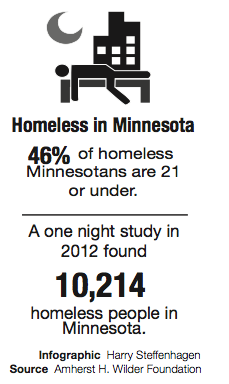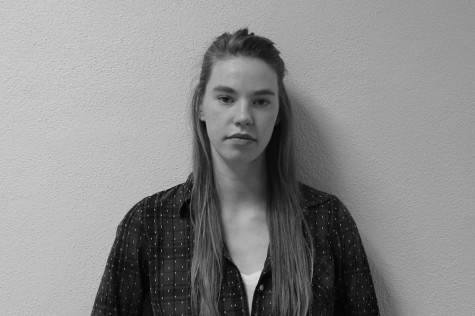Minnesota moves to better serve the homeless
New proposal sponsors larger, permanent shelters

March 16, 2015
While some people feel at home in a church, mosque, temple or other religious institution, others do not. Until recently, the homeless population in Minneapolis has had no choice but to make these temporary shelters their homes.
Currently, homeless shelters existing outside of downtown Minneapolis are only allowed to operate out of religious institutions. However, officials are looking to remove this law and separate homeless shelters from places of worship.
This is a smart decision, especially considering the large number of homeless people in Minnesota. A survey conducted in 2012 by Wilder Research estimates nearly 40,000 adults and 5,100 teens (aged 17 or younger) in Minnesota experienced homelessness at least once during the course of a full year, and 22 percent of homeless adults have been turned away from shelters because of lack of bed spaces.
Homelessness is a problem that is even present at Park. According to Lynda Stanley, student data specialist at Park, currently 30 students are homeless at the high school (as of March 5). This accounts for roughly 2 percent of the student body.
While churches and other religious buildings have functioned up to this point as an emergency housing option, they don’t have the proper assets in place to support a large number of people. This is why they serve as only temporary shelters, which doesn’t help the homeless have a safe and constant place to seek help.
Because of this, the homeless who are turned away are left with nowhere to turn. This proposal would allow for adequate housing facilities to be built that can support a large number of people comfortably, as well as provide other resources.
These include amenities such as employment centers, case manager offices and health clinics.
Ultimately, the most important part of building new shelters is removing all religious affiliation. The importance of this change cannot be emphasized enough.
No homeless person, whether they be a student or adult, should have no choice but to spend the night at a ill-equipped religious facility; especially one that goes against their own personal beliefs.



